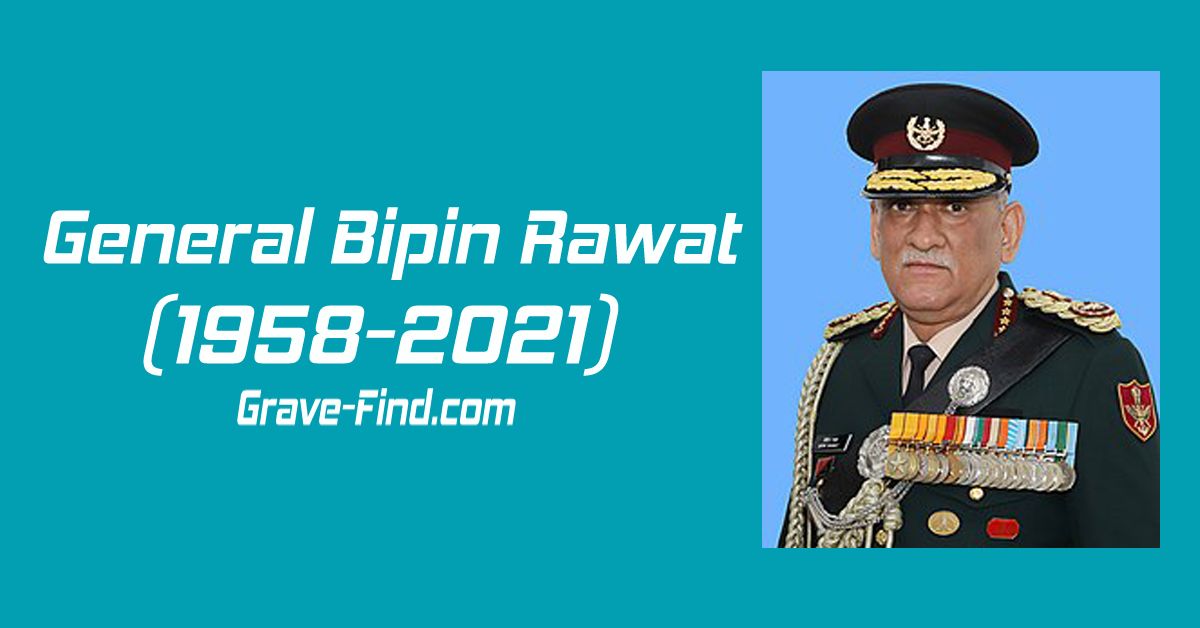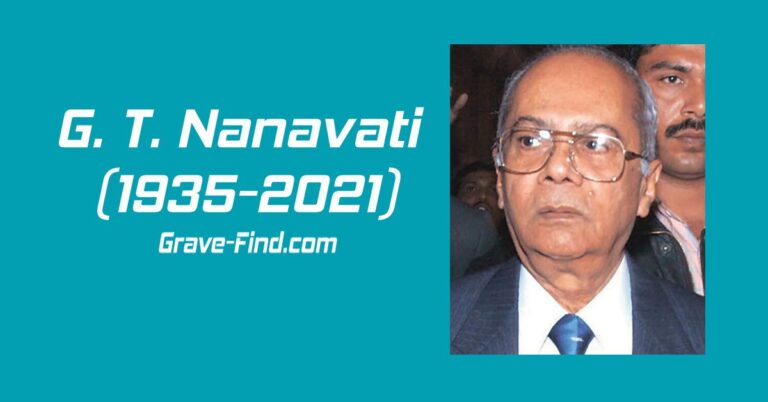Bipin Rawat (1958-2021) Indian Military Officer
Bipin Rawat (1958-2021) Indian Military Officer
| Name | Claude Humphrey |
| Age | 63 Years |
| Birth | 6 March 1958 |
| Birthplace | Pauri Garhwal, INDIA |
| Death | 8 December 2021 |
| Cause of death | Helicopter crash |
| Deathplace | Nilgiris,India |
| Profession | 1st Chief of Defence Staff |
| Burial | Cremated at Brar Square, New Delhi on 10 December 2021 |
| Nationality | Indian |
General Bipin Rawat was an Indian military officer
who was a four-star general of the Indian Army. He served as the first Chief of Defence Staff (CDS) of the Indian Armed Forces from January 2020 until his death in a helicopter crash in December 2021. Prior to taking over as the CDS, he served as the 57th and last Chairman of the Chiefs of Staff Committee as well as 26th Chief of Army Staff of the Indian Army.
General Bipin Rawat Early life and education
Bipin Rawat was born in Pauri town of Pauri Garhwal district, modern-day Uttarakhand state, on 16 March 1958.His family had been serving in the Indian Army for multiple generations. His father Lakshman Singh Rawat (1930–2015) was from Sainj village of the Pauri Garhwal district; commissioned into 11 Gorkha Rifles in 1951, he retired as Deputy Chief of the Army Staff in 1988 as a lieutenant-general. His mother was from the Uttarkashi district and was the daughter of Kishan Singh Parmar, the ex-Member of the Legislative Assembly (MLA) from Uttarkashi.
Rawat attended Cambrian Hall School in Dehradun and St. Edward’s School in Shimla. He then joined the National Defence Academy, Khadakwasla and the Indian Military Academy, Dehradun, from where he graduated first in the order of merit and was awarded the ‘Sword of Honour’.
Rawat was also a graduate of the Defence Services Staff College (DSSC), Wellington and the Higher Command Course at the United States Army Command and General Staff College (USACGSC) at Fort Leavenworth, Kansas in 1997. From his tenure at the DSSC, he obtained an MPhil degree in Defence Studies as well as diplomas in Management and Computer Studies from the University of Madras. In 2011, he was awarded a honorary doctorate by CCS University, Meerut for his research on military-media strategic studies.
General Bipin Rawat Military career
Early career
Rawat was commissioned into the 5th battalion, the 11 Gorkha Rifles (5/11 GR) on 16 December 1978, the same unit as his father.
During the 1987 Sino-Indian skirmish in the Sumdorong Chu valley, then Captain Rawat’s battalion was deployed against the Chinese People’s Liberation Army. The standoff was the first military confrontation along the disputed McMahon Line after the 1962 war.
He has much experience in high-altitude warfare and spent ten years conducting counter-insurgency operations. He commanded a company in Uri, Jammu and Kashmir as a major. As a colonel, he commanded his battalion, the 5th battalion, the 11 Gorkha Rifles, in the eastern sector along the Line of Actual Control at Kibithu. Promoted to the rank of brigadier, he commanded 5 Sector of Rashtriya Rifles in Sopore.
UN mission in Congo
Rawat commanded MONUSCO (a Multinational Brigade in a Chapter VII mission in the Democratic Republic of the Congo). Within two weeks of deployment in the DRC, the Brigade faced a major offensive in the east which threatened the regional capital of North Kivu, Goma. The offensive also threatened to destabilise the country as a whole. The situation demanded a rapid response and North Kivu Brigade was reinforced, where it was responsible for over 7,000 men and women, representing nearly half of the total MONUSCO force. Whilst simultaneously engaged in offensive kinetic operations against the CNDP and other armed groups, Rawat (then Brigadier) carried out tactical support to the Congolese Army (FARDC), He sensitization programmes with the local population and detailed coordination to ensure that all were informed about the situation and worked together in the progress of operations. He was responsible for the protection of the vulnerable population.
This operational period lasted for four months. Goma never fell, the East stabilized and the main armed group was motivated to the negotiating table and has since been integrated into the FARDC. He was also tasked to present the Revised Charter of Peace Enforcement to the Special Representatives of the Secretary-General and Force Commanders of all the UN missions in a special conference at Wilton Park, London, on 16 May 2009. Rawat was twice awarded the Force Commander’s Commendation.
General officer
After promotion to major general, Rawat took over as the General Officer Commanding 19th Infantry Division (Uri). As a lieutenant general, he commanded III Corps, headquartered in Dimapur, before taking over the Southern Army in Pune.
He also held staff assignments which included an instructional tenure at the Indian Military Academy (Dehradun), General Staff Officer Grade 2 at the Military Operations Directorate, logistics staff officer of a Re-organised Army Plains Infantry Division (RAPID) in central India, Colonel Military Secretary and Deputy Military Secretary in the Military Secretary’s Branch and Senior Instructor in the Junior Command Wing. He also served as the Major General General Staff (MGGS) of the Eastern Command.
2015 Myanmar strikes
In June 2015, eighteen Indian soldiers were killed in an ambush by militants belonging to the United Liberation Front of Western South East Asia (UNLFW) in Manipur. The Indian Army responded with cross-border strikes in which units of the 21st battalion of the Parachute Regiment struck an NSCN-K base in Myanmar. 21 Para was under the operational control of the Dimapur based III Corps, which was then commanded by Rawat.
Southern Army Commander
After being promoted to the Army Commander grade, Rawat assumed the post of General Officer Commanding-in-Chief (GOC-in-C) Southern Command on 1 January 2016. After a short stint, he assumed the post of Vice Chief of Army Staff on 1 September 2016.
Chief of the Army Staff
On 17 December 2016, the Government of India appointed Rawat as the 27th Chief of the Army Staff, superseding two more senior Lieutenant Generals, Praveen Bakshi and P. M. Hariz. The appointment made by NDA ruled Government was politically controversial.
He took office of Chief of Army Staff as the 27th COAS on 31 December 2016, after retirement of General Dalbir Singh Suhag. He was the third officer from the Gorkha Brigade to become the Chief of the Army Staff, after Field Marshal Sam Manekshaw and General Dalbir Singh Suhag.
In 2018, Rawat defended the army Major involved in the Kashmir human shield incident, where a Kashmiri man was tied to a jeep as a human shield. The officer was awarded a Chief of Army Staff Commendation Card by Rawat for counter-insurgency operations.
Rawat had been criticized by the opposition party leaders for making political statements during the Citizenship Amendment Act protests.
On his visit to the United States in 2019, General Rawat was inducted to the United States Army Command and General Staff College International Hall of Fame. He was an honorary General of Nepalese Army in accordance with the tradition between the Indian and Nepali armies to confer the honorary rank of General upon each other’s chiefs to signify their close and special military ties.
Rawat served as the 57th and last Chairman of the Chiefs of Staff Committee.
Chief of Defence Staff
CDS General Bipin Rawat with COAS General Manoj Mukund Naravane, CNS Admiral Karambir Singh and CAS Air Chief Marshal R K S Bhadauria after the ceremonial Guard of Honour, in New Delhi on January 01, 2020
He served as the first Chief of Defence Staff (CDS) of the Indian Armed Forces from January 2020 until his death in December 2021.
India as of 2021 had service–specific commands system. joint and integrated commands, also known as unified commands; and further divided into theatre or functional commands, have been set up and more are proposed. In February 2020, Rawat said two to five theatre commands may be set up. The completion of the creation of theatre commands, both integrated and joint commands, will take a number of years. Indian Air Force opposed the formation of unified theatre commands citing limitation of resources.
In early 2021, Rawat called the Indian Air Force a “supporting arm” of India’s defence network and infrastructure. Air Chief Marshal R.K.S. Bhadauria made a public statement in response that the IAF served a bigger role than a supporting arm.
Comments on China
On 15 September 2021 while speaking at an event in the capacity of the CDS at the India International Centre in New Delhi, General Rawat touched upon the theory of clash of civilisations with regards to the western civilisation and China’s growing relations with countries like Iran and Turkey. The next day, on 16 September 2021, India’s Minister of External Affairs S. Jaishankar conveyed to his Chinese counterpart that India does not subscribe to any clash of civilisations theory.
General Bipin Rawat Personal life
In 1985, Rawat married Madhulika Raje Singh. A descendant of an erstwhile princely family, she was the daughter of Kunwar Mrigendra Singh, sometime Riyasatdar of the pargana of Sohagpur Riyasat in Shahdol district and an Indian National Congress MLA from the district in 1967 and 1972. She was educated at Scindia Kanya Vidyalaya in Gwalior and graduated in psychology at Delhi University. The couple had two daughters, Kritika and Tarini.
Madhulika Rawat was the president of the Army Wives Welfare Association (AWWA) during Bipin Rawat’s tenure as Chief of Army Staff. She became the president of the Defence Wives Welfare Association (DWWA), upon the creation of the post and the appointment of General Bipin Rawat as the first CDS. She worked to make the wives of defence personnel financially independent. She was also involved with NGOs and welfare associations such as Veer Naris that assists widows of military personnel, differently-abled children and cancer patients.
Bipin Rawat Death and news
On 8 December 2021, Rawat, his wife and members of his staff were amongst 10 passengers and 4 crew members aboard an Indian Air Force Mil Mi-17 helicopter flight en route from the Sulur Airforce base to the Defence Services Staff College (DSSC), Wellington, where Rawat was to deliver a lecture. At around 12:10 p.m. local time, the aircraft crashed near a residential colony of private tea estate employees on the outskirts of the hamlet of Nanjappachatiram, Bandishola panchayat, in the Katteri-Nanchappanchathram area of Coonoor taluk, Nilgiris district. The crash site was 10 km from the flight’s intended destination. Rawat’s death – and those of his wife and 11 others – was later confirmed by the Indian Air Force. Rawat’s liaison officer, Group Captain Varun Singh was the sole survivor. Rawat was 63 at the time of his death.
Bipin Rawat and his wife were cremated according to Hindu rituals with full military honours at Brar Square, New Delhi on 10 December 2021. They were accorded a 17 gun salute. The cremation was carried out by his 2 daughters.
Honours and decorations
During his career of nearly 43 years, he was awarded for gallantry and distinguished service with the Param Vishisht Seva Medal, Uttam Yudh Seva Medal, Ati Vishisht Seva Medal, Yudh Seva Medal, Sena Medal, Vishisht Seva Medal, the COAS Commendation on two occasions and the Army Commander’s Commendation.







